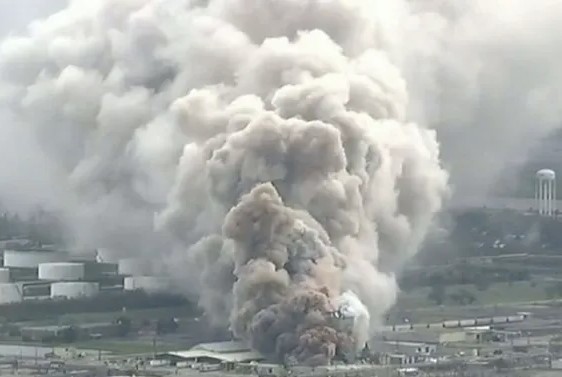Hurricane Beryl was the Atlantic Ocean’s earliest Category 5 storm on record, raising concerns about a “harsh” hurricane season ahead. The U.S. Chemical Safety and Hazard Investigation Board (CSB) is urging chemical companies to prepare their facilities now to avoid potential catastrophe.

In May, the National Oceanic and Atmospheric Administration (NOAA) predicted an 85% chance of an above-normal 2024 Atlantic hurricane season. Unfortunately, the early arrival of Hurricane Beryl may be a harbinger of worse storms to come before hurricane season ends in November. In light of NOAA’s prediction and Beryl’s “explosive start” to the season, chemical and refining facilities in the United States must ensure that they are prepared for any potential impacts.
“Hurricanes can greatly damage chemical and refining facilities and cause hazardous chemical releases that severely impact workers and surrounding communities,” said CSB Chairperson Steve Owens. “Hurricane Beryl should serve as an early warning to chemical companies to act now to ensure their facilities can withstand the impact of a hurricane or other extreme weather events including wind, flooding, or storm surge. This includes having reliable backup generators in case there is a loss of power to a facility.”
Recent Catastrophes
As an independent federal agency, the CSB has investigated two catastrophic chemical incidents caused by hurricanes in recent years.
On Aug. 31, 2017, fires erupted at the Arkema chemical facility in Crosby, Texas, due to heavy rain from Hurricane Harvey. Plant equipment flooded and failed, causing chemicals stored at the facility to decompose and burn, releasing fumes and smoke into the air. Twenty-one people sought medical attention from reported exposures to the fumes. More than 200 residents living near the facility were evacuated and could not return home for a week.
On Aug. 27, 2020, extreme winds from Category 4 Hurricane Laura caused severe damage to buildings storing a trichloroisocyanuric acid (TCCA)-based formulation at the Bio-Lab chemical facility in Westlake, La. After Hurricane Laura’s winds damaged the buildings at the Bio-Lab facility, water came into contact with the TCCA-based formulation stored inside, initiating a chemical reaction and the subsequent decomposition of the product. The heat from the reactions initiated a fire, and the decomposition released large plumes of hazardous gases, including toxic chlorine, into the air. A portion of nearby Interstate 10 was closed for over 28 hours, and a shelter-in-place order was issued. The hurricane also caused a power outage which made the facility’s fire protection equipment inoperable. The company’s backup generators also failed. The decomposition and fire destroyed a production building at the Bio-Lab facility and damaged additional structures. The cost to rebuild the facility was approximately $250 million.
Regulatory Measures
Last year, based on the CSB’s investigations into these events and other concerns, the CSB also called on the Federal Energy Regulatory Commission (FERC) to take action to ensure that the nation’s bulk-power system is protected from hurricanes and other high-wind extreme weather events in order to prevent power losses at chemical facilities.
Importantly, earlier this year, the U.S. Environmental Protection Agency (EPA) finalized its amendments to the Risk Management Program referred to as the “Safer Communities by Chemical Accident Prevention – Risk Management Program Final Rule” to protect at-risk communities from chemical accidents, especially those located near facilities in industry sectors with high accident rates. Its safety improvements emphasize that facilities evaluate their vulnerability to “natural hazards” such as hurricanes and ensure that effective strategies are in place to account for extreme weather impacts, including any associated loss of power. The CSB supported this requirement during the EPA’s rulemaking process.
Owens concluded, “The unprecedented early arrival of Hurricane Beryl shows that when it comes to extreme weather, chemical companies should expect the unexpected and must always be prepared for the worst-case scenario. Unfortunately, extreme weather events are becoming increasingly more common and more severe. Chemical and refining facilities must be more prepared than ever to prevent a serious chemical accident from occurring.”
ALSO READ: Back to Basics: Preparing Your Facility for Hurricanes
